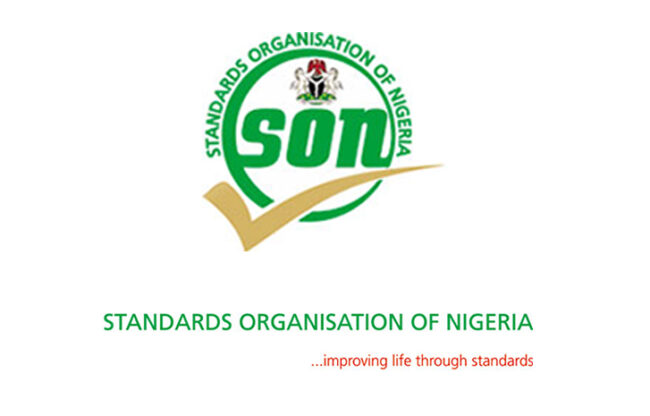The Standards Organisation of Nigeria (SON) has released over 80 newly approved standards for compressed natural gas (CNG) for road vehicles and related appliances as part of the Presidential Compressed Natural Gas Initiative (PCNGI).
SON said the release of the new standards marks the beginning of the journey towards safer, more reliable, cheaper, environmentally sustainable, and most importantly, alternative fuel utilisation across our nation for road vehicles and other CNG-related appliances.
According to a statement by Mrs Foluso Bolaji, “SON’s commitment to excellence and innovation in line with international best practices has culminated in developing and approving these standards, representing a significant milestone in our efforts to promote safety and quality in the energy sector.
“Compressed natural gas (CNG) is a clean and efficient alternative to traditional fuels, with applications ranging from transportation to industrial processes. However, its safe and effective utilisation requires adherence to rigorous standards that address production, storage, transportation, and utilisation.
“The Presidential CNG Initiative (PCNGI) is a component of the palliative intervention of President Bola Ahmed Tinubu’s administration.
“PCNGI was inaugurated, setting up a committee comprising relevant regulatory agencies such as the National Mid-Stream Down-Stream Petroleum Regulatory Authority (NMDPRA), the Standards Organisation of Nigeria (SON), the Nigerian Institute of Transport Technology (NITT), the National Automotive Design and Development Council (NADDC), the Ministry of Finance Incorporation (MOFI), and other key stakeholders.”.
The statement explained that “every regulatory agency was given responsibility within its framework and tasked to quickly deliver hope to Nigerians by ensuring that Nigeria is ready to include CNG as an alternative fuel for vehicle propulsion.
“In furtherance to the above, the Standards Organisation of Nigeria developed eighty (80) standards and guidelines for CNG road vehicles and related appliances. The eighty (80) standards encompass a wide range of technical specifications and requirements, including the CNG conversion kit, standards for electrical connections, and vehicle diagnostics.
“Others are Standards for roadworthiness and Vehicle safety, Standards for CNG storage Vessels, Standards for CNG refuelling Stations, and guidelines for installation of specific components to support the use of compressed natural gas (CNG) for Vehicle propulsion
“The development of these standards was a collaborative effort, bringing together industry experts, regulators, and stakeholders from across the country.”.
SON reaffirmed that adhering to these standards offers numerous benefits, like enhanced safety for consumers, workers, and the environment.
“Improved reliability and efficiency in CNG operations, facilitated interoperability and compatibility within the CNG ecosystem, and increased confidence among consumers, investors, and policymakers.
“As SON releases these standards, we call upon all stakeholders to embrace them wholeheartedly and to prioritise their effective implementation. By doing so, we can assure that the utilisation of CNG meets the highest standards of safety, quality, and environmental sustainability and will provide the best alternative for fuel utilisation,” the statement concluded.
